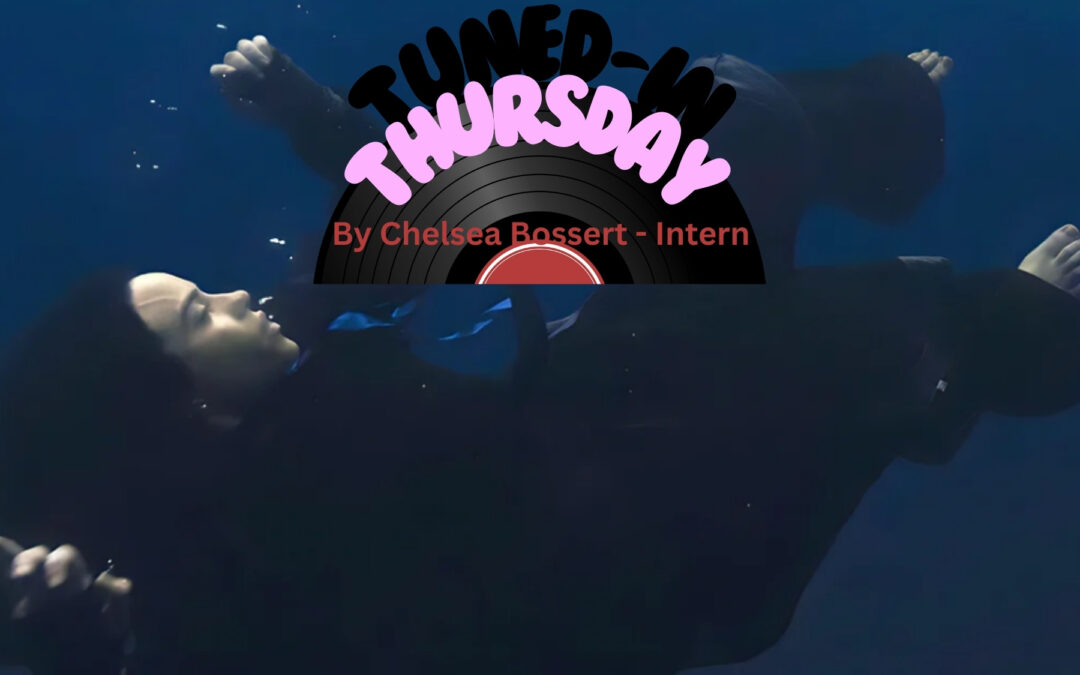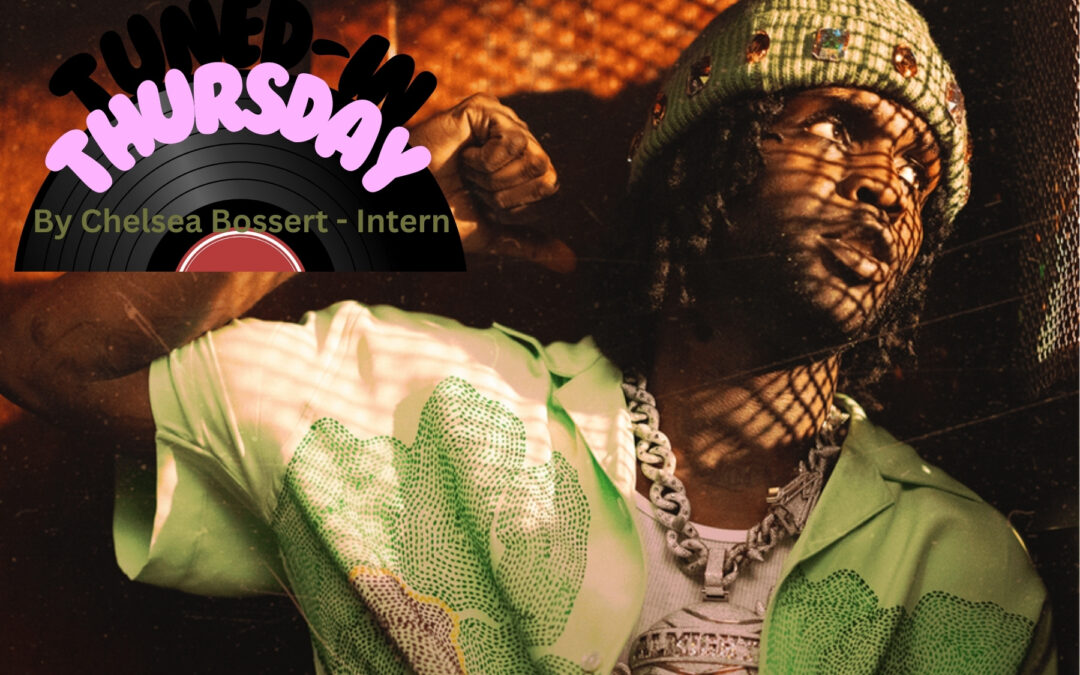
by orionontv | May 23, 2024 | Entertainment, Feature Writers, Music, Pop Culture
Serene, calm and commanding. The atmosphere that 22-year old Billie Eillish brings about on her third studio album, “HIT ME HARD AND SOFT,” is absolutely divine – especially on the first track, “SKINNY.”
The quaint guitar, bass, and strings on that track completely entrance the listener into Billie’s world: one of heartbreak but also one of curiosity and inspiration.
The effortless transition into the next track, “LUNCH,” a silky and seductive banger that explores themes of Billie’s newfound queerness and her willingness to dive right into pleasure is a theme that is not foreign to pop songs, however, Billie’s sincereness and excitement with the subject makes me believe that this is a topic that she has wanted to tackle for a while now.
The lyricism and on-the-nose stylistic leanings of Billie is not just with her, but with her brother and sole producer of the record, Finneas, as well.
The crisp yet subdued bass lines are absolutely perfect for this record and its atmosphere. Billie, like she is in the cover, is completely submerged in water, however, she still is floating, a feeling directly felt in the next track, “CHIHIRO.”
Back to the lyrics and how they fit in with the theming of the record, Billie sings in “CHIHIRO,” “Open up the door, can you open up the door?/I know you said before you can’t cope with any more/You told me it was war, said you’d show me what’s in store/I hope it’s not for sure, can you open up the door?.”
In this track, Billie is struggling with not only this newfound sexuality and queerness, but she is also struggling with this new relationship she has found herself in.
Billie could even be read as borderline obsessive, with those themes carrying over into the eighth track, “THE DINER.”
“I’m waitin’ on your block (I’m waitin’ on your block)/But please don’t call the cops/They’ll make me stop/And I just wanna talk (I just wanna talk).”
Some would speculate that this verse reads as Billie musing from the perspective of one of her crazed stalkers, however, I interpret it as an analogy to her own loving obsession over the subject of the album’s story. I also view it as a sister track to “CHIHIRO,” showcasing the darker side to new love: obsession.
“HIT ME HARD AND SOFT” also has its grander moments, like in “THE GREATEST” and “BITTERSUITE.” The booming rock instrumental passages and vocals of Billie hit in both of those tracks, the latter of which shocked me with the fact that it has three tonal changes.
The last track, “BLUE,” is a synthy, cold but uplifting track about heartbreak and how you can move on from it.
“I try (I’m not what) to live in black and white, but I’m so blue (But I’m not what you need)/I’d like (Not what you need) to mean it when I say I’m over you/But that’s still not true, true.”
Then, the track fades out and fades in again for a soft, beautiful piano ballad about their past lover’s upbringing and how they are inherently more similar than she’d like to think.
The strings carry the track out and it fades, but not before we hear, “But when can I hear the next one,” referencing another album on the way soon, (or it could just be a plain tease to her fanbase.)
Overall, Billie Eillish’s gorgeous and stylistic new album stunned and shocked me, in all the best ways. She continues to make records equally as good as the last and has continued to carve her place in the pop-culture zeitgeist for years to come.

by orionontv | May 16, 2024 | Entertainment, Feature Writers, Music, Pop Culture
Expectations can be a damning thing. If you have predisposed ideas about a person, group, idea or event, then it completely warps your idea of what that thing is and will be. This rings true for a myriad of different topics but how it primarily affects me and my music enjoyment is with hip-hop.
Every time I think that a certain artist is done with producing and releasing good music, and every time I think that there is an artist that can do no wrong, something changes – those expectations get undermined.
This is what happened last year, about six months ago, with Westside Gunn and Ken Carson, two artists who have primarily released great and poor music respectively. Ken Carson ended up releasing the better album that week by a large margin and Westside Gunn’s ended up falling short.
This week, we have two hip-hop/RnB and neo-soul legends, Chief Keef and Donald Glover (a.k.a. Childish Gambino.) Both artists have carved their own paths in music cannon in the early to mid-2010s.
Keith Farrelle Cozart (a.k.a. Chief Keef,) is a Chicago-drill artist that rose to prominence in the early-2010s with his abrasive and bombastic drill tracks such as “I Don’t Like” and “Love Sosa.” Lately though, Chief Keef’s music has been on the decline, with each release straying farther and farther from what made his music fresh and great.
However, Chief Keef’s latest studio outing, “Almighty So 2,” is a mighty beacon of hope to those who have written Chief Keef off.
To start off with genre, this was not a trend-hopping rage rap album like people have predicted, instead this is a full blown, throwback, true Chicago-drill rap album. Songs like “Jesus,” “Runner” and “1,2,3” all have triumphant production that include classic drill staples: horns, a pulsing bass line, clicking hi hats and lots of car engine sound effects.
Chief Keef is arguably the most comfortable he has ever sounded, no awkward flows, no whack-sounding bars – all precision and all skill. Boastful yet introspective lyrics are what I usually look for on the lyrical side of a modern rap record and Chief Keef effortlessly delivers.
Finally, the record is the perfect length, 16 tracks and just over an hour – the album never overstays its welcome. There are a few tracks and one skit near the beginning of the record that halt the album’s momentum for a bit, however this is short-lived as track five, “Jesus” really picks the album’s speed back up.
For Chief Keef, this album is a great moment, however, on the other side of the spectrum is Childish Gambino.
Gambino is one who usually releases great music: “Because The Internet,” “’Awaken My Love’” and the single “This Is America” all have set him up for success.
Gambino’s latest effort, “Atavista” (formerly the project known as “3.15.20”) is a revamp of his 2020 record, an album that – at the time – sounded entirely unfinished. Now, that record is complete, with one new track, re-mixed and re-mastered original tracks, and a thematic through line to tie it all together, how does “Atavista” hold up against all of Gambino’s other records?
The answer is not well.
The truth is, Gambino does not expand upon any established ideas, instead he recycles them until there is no more meaning to those original great ideas.
The meandering alternative-RnB of “Because The Internet” is present on tracks like “To Be Hunted” and “Sweet Thang,” as well as the progressive neo-soul of “’Awaken My Love’” on “Time” and even the jitter, erratic hip-hop of Gambino’s critically panned (but cult-classic nonetheless), “Camp” on “Final Church.”
All of these recycled and not-expanded upon ideas just feel tired at this point. It’s depressing that Gambino spends four years re-mixing and re-mastering all of these tracks just to end up sounding like copies of your old work.
It’s not a good look at all.
What we can learn from this journey into expectation is to just not have expectations. Go into an album blind, do not look anything up about it, do not listen to any singles or teasers – just listen!
If we all lose our expectations of what something can be, then we can really have a discussion of the merits of art and the like.

by Becky Andrus | May 9, 2024 | Entertainment, Feature Writers, Music, Pop Culture
For many years, Dua Lipa has had a stranglehold on pop music. Releasing her first studio album back in 2017, she has been keen on the recent trends of the genre, transforming from RnB-inspired electropop, to anthemic dance-pop hits, and now psychedelic euro disco grooves.
Top charters like “Don’t Stop Now,” “Physical” and “Levitating” (along with its DaBaby remix,) have proved that Dua Lipa can tap into the pulse of the pop music zeitgeist – however, with her most recent studio outing, “Radical Optimism,” Dua seems to be losing her place on top of the pop music totem pole.
To start off the record, the first track “End Of An Era,” both indicates the end of Dua’s previous musical era, the “Future Nostalgia/Dance the Night Away” era, as well as the end and start of a new, exciting relationship in her life.
“No more ‘you’re not my type’, no more ‘at least I tried’/Done with the lonely nights, I guess/One chapter might be done, God knows I had some fun/New one has just begun,” Dua Lipa sings in “End Of An Era.”
As she has stated in countless interviews and press-releases, through self-reflection, Dua has a new outlook on life and the world through music she has been listening to for the past five years.
However, this perspective does not translate on the first song. Dua kicks off the record with a track indistinguishable from about half of the other songs on the record: samey-sounding synths, bass, drums and even vocals plague “Radical Optimism.”
The problem with an album like “Radical Optimism” is that the influences that Dua identifies and factors contributing to the album’s sound just are not present on most of the tracks.
“At the same time, I found myself looking through the music history of psychedelia, trip hop, and Britpop. It has always felt so confidently optimistic to me, and that honesty and attitude is a feeling I took into my recording sessions,” Dua shared when first teasing the record.
Dua Lipa also has worked with several producers who work on alternative and electronic music, including Danny L Harle and Kevin Parker (of Tame Impala.)
These ideas all seem interesting, provocative and innovative – but why does the album sound so manufactured and faltered.
The simple (yet speculative) answer is that Dua Lipa is signed to Warner Records UK, which is a ginormous music company. Labels like Warner snatch rising stars, sign them to lengthy and demanding contracts, all while filtering their visions and condensing their products to sell to the lowest common denominator.
Tracks like “End Of An Era,” Falling Forever,” “Whatcha Doing,” “Anything For Love” and “Maria” all contain incredibly similar elements and structure, not changing or contributing to the evolution of the album’s sound.
Frankly, the jump from a record like 2020’s “Future Nostalgia” and even the single “Dance The Night Away” from the “Barbie” movie soundtrack to “Radical Optimism” is downright depressing.
The few tracks on here that I can find some sense of unique identity in, like “Houdini and “These Walls” – feel as though they are the last remaining pieces of an album lost to weeks and months of executive board room filtering.
Although Dua seems to have gained a newfound appreciation for the world and has transferred that new outlook into her music – I do not buy it.



